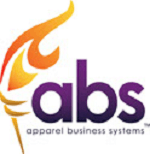Description

ABS Software

Siemens
Comprehensive Overview: ABS Software vs Siemens
As of my last update, ABS Software by Siemens refers to a suite of solutions primarily related to automation, digitalization, and engineering for various industries. However, it's important to emphasize that information could vary depending on the specific branding or naming practices Siemens may follow, as they develop and market numerous software platforms and products across different sectors. If you're referring to a recently developed or more specific software, please check the latest resources or Siemens' official communications for the most accurate details.
a) Primary Functions and Target Markets:
-
Primary Functions:
- Automation and Control: ABS Software by Siemens often encompasses tools for automation, helping manufacturing and production facilities increase efficiency, precision, and productivity.
- Digital Twin and Simulation: Provides platforms for creating digital twins, enabling companies to simulate processes or products to optimize performance.
- Data Analytics and Intelligence: Utilizes analytics for predictive maintenance, operations optimization, and decision support.
- Engineering Design and PLM (Product Lifecycle Management): Supports end-to-end product design, development, and lifecycle management in complex engineering environments.
-
Target Markets:
- Manufacturing and Industrial Automation: Factories and production facilities looking to enhance automation, reduce downtime, and improve quality.
- Automotive and Aerospace: Companies requiring advanced engineering solutions and design simulation.
- Energy and Utilities: Businesses seeking efficient operation of complex systems, involved in areas like power generation and distribution.
- Infrastructure and Building Technology: Uses in smart infrastructure management and construction.
b) Market Share and User Base:
Siemens, as a conglomerate, competes with other major industrial software providers like General Electric, Schneider Electric, and Rockwell Automation. The specific market share of ABS or similar software from Siemens would depend on how it's defined in terms of its stack and applications. In the realm of industrial automation and control software, Siemens consistently ranks among the top providers globally.
- Market Share: Siemens generally enjoys a strong position due to its comprehensive offerings that integrate hardware and software solutions, having a significant share in sectors such as manufacturing automation and control systems.
- User Base: Features a diverse user base globally, from large-scale multinational corporations to smaller enterprises within its vertical markets, facilitated by its global reach and subsidiary networks.
c) Key Differentiating Factors:
-
Integration with Hardware Solutions:
- Siemens offers a unique advantage by providing a fully integrated system of both hardware and software, enabling seamless interoperability.
-
Comprehensive Ecosystem:
- The broad ecosystem includes tools for industrial IoT, digital twin, and advanced analytics, making it a versatile choice for companies seeking holistic solutions.
-
Innovation and R&D Investment:
- With significant investments in R&D, Siemens constantly innovates and updates its software tools to meet the evolving needs of industries, focusing on digital transformation.
-
Global Reach and Support:
- Combines global presence with robust customer support and localized services, providing extensive reach and support capabilities.
-
Scalable Solutions:
- Offers scalable solutions that range from supporting small-scale operations to large enterprise systems, accommodating various business sizes and needs.
In summary, Siemens ABS software or any related systems reflect a strategic alignment with industry needs through innovation, comprehensive solutions, and global capabilities. To obtain the most accurate and current specifics about Siemens ABS software, it's advised to consult Siemens' official materials or recent industry analyses.
Contact Info

Year founded :
Not Available
Not Available
Not Available
Australia
http://www.linkedin.com/company/abs-software

Year founded :
Not Available
Not Available
Not Available
United States
Not Available
Feature Similarity Breakdown: ABS Software, Siemens
As of the latest information available up to October 2023, here is a breakdown of feature similarities and distinctions between ABS Software and Siemens software solutions. Both companies offer products primarily targeting industries such as manufacturing, engineering, and industrial automation, so the comparison will focus on general capabilities typical of such software.
a) Core Features in Common
-
Automation Capabilities: Both ABS Software and Siemens offer automation solutions. These include features like process automation, where repetitive tasks are automated to improve efficiency and reduce human error.
-
Data Analytics: Both companies provide robust analytics tools that help in data collection, processing, and visualization. These tools are often integrated with real-time data processing capabilities for operational insights.
-
Integration Flexibility: Both companies design their software to easily integrate with other systems and tools. This is crucial for industries that rely on a heterogenous mix of technologies and platforms.
-
Simulation Tools: Simulation is a key feature in industrial software, allowing users to model processes or systems in a virtual environment. Both ABS and Siemens offer robust simulation capabilities.
-
Scalability: Both software solutions are scalable, making them adaptable for both small enterprises and large corporations.
b) User Interface Comparison
-
Design Aesthetics: Siemens software generally places a strong emphasis on technical depth and functionality over simplicity, which can sometimes result in a steeper learning curve. In contrast, ABS Software may prioritize more intuitive, streamlined interfaces designed for quicker navigation.
-
Customization: Siemens interfaces tend to offer extensive customization options, allowing users to tailor the dashboard and workspace layouts to suit specific needs. ABS Software might offer fewer customization options, focusing instead on pre-configured settings that work well out of the box.
-
User Experience: Siemens software often caters to advanced users familiar with industrial automation, reflected in its complex UI geared towards detailed customization and control. ABS Software might aim for a balance between depth and ease of use, potentially offering more guided user experiences or wizards to assist users.
c) Unique Features
-
Unique Features of ABS Software:
- Industry-Specific Modules: ABS may offer specialized modules catering to niche industries, providing tailored functionalities that are distinctive to specific industrial sectors.
- Simplified Onboarding: They might focus on user-friendly onboarding processes with extensive tutorials and support, making it easier for new users to adopt the software.
-
Unique Features of Siemens:
- Advanced IoT Integration: Siemens is known for its extensive IoT capabilities, including seamless integration with hardware and industrial internet solutions, often under their MindSphere platform.
- Comprehensive Digital Twin Technology: Siemens is a leader in the digital twin space, offering deep integration capabilities for creating highly detailed digital replicas of physical systems.
Both ABS Software and Siemens provide powerful solutions tailored to the industrial and manufacturing sectors. The choice largely depends on the specific requirements, existing system integrations, and the expertise of the user base.
Features

Not Available

Not Available
Best Fit Use Cases: ABS Software, Siemens
ABS (Advanced Business Software) Software and Siemens both offer robust solutions, but their fit depends on the specific needs and contexts of businesses or projects. Below is a breakdown of the best use cases for each, along with how they cater to different industry verticals or company sizes.
ABS Software
a) Best Fit Businesses or Projects:
-
Small to Medium Enterprises (SMEs):
- ABS Software often targets small to medium businesses that require flexible and scalable business management solutions. It is suited for companies looking for cost-effective, user-friendly solutions without the need for heavily customized features.
-
Retail and E-commerce:
- For businesses in retail or e-commerce, ABS Software offers features like inventory management, sales tracking, and CRM, providing an integrated platform to handle sales channels efficiently.
-
Service-Based Industries:
- Companies in consulting, marketing, or other service-related fields can benefit from ABS Software’s project management and seamless invoicing capabilities, which offer streamlined operations handling.
-
Startups and Growing Businesses:
- Startups needing to quickly adapt software to their changing needs can lean on the modular architecture of ABS Software, which allows adding features as they grow.
d) Catering to Industry Verticals and Company Sizes:
-
Industry Verticals: ABS Software is versatile in addressing the unique needs of various verticals like retail, hospitality, and finance. Its customizability and broad base functionality make it applicable across these industries without requiring extensive tailoring.
-
Company Size: Typically catered towards SMEs, the software can scale upwards with increasing enterprise requirements but remains particularly attractive for startups and small businesses due to its straightforward implementation and maintenance.
Siemens Software
b) Preferred Scenarios for Use:
-
Large Enterprises and Industrial Applications:
- Siemens provides robust industry-specific solutions for large enterprises, particularly those requiring heavy data analytics, IoT integration, and advanced automation systems. This makes it ideal for sectors like automotive, aerospace, and manufacturing.
-
Highly Regulated Industries:
- Industries like healthcare, energy, and utilities, where compliance and regulation are critical, benefit from Siemens’ strong adherence to international standards and certifications.
-
Engineering and Product Lifecycle Management (PLM):
- Siemens excels in engineering-driven industries, offering solutions like Teamcenter and NX for comprehensive PLM, making it the go-to choice for companies needing detailed engineering collaboration and project tracking.
-
Smart Infrastructure and Digitalization Projects:
- For businesses focusing on digital transformation and smart infrastructure, Siemens offers solutions that integrate AI, digital twins, and other advanced technologies to optimize performance and innovation.
d) Catering to Industry Verticals and Company Sizes:
-
Industry Verticals: Siemens addresses complex requirements in verticals including automotive, aerospace, healthcare, energy, and utilities. Its solutions are designed to meet the needs of industries dealing with high-tech engineering, extensive regulatory requirements, and large-scale manufacturing.
-
Company Size: Primarily aimed at large enterprises and multinational corporations due to its high investment cost, implementation complexity, and rich feature set that support comprehensive enterprise-wide digital transformation initiatives.
In summary, choosing between ABS Software and Siemens depends largely on the business scale, industry needs, and specific project requirements. ABS Software is best suited for SMEs and service-driven industries, whereas Siemens is preferred for large-scale industrial applications, heavily regulated sectors, and companies undergoing significant digital transformations.
Pricing

Pricing Not Available

Pricing Not Available
Metrics History
Metrics History
Comparing teamSize across companies
Conclusion & Final Verdict: ABS Software vs Siemens
To provide a comprehensive conclusion and final verdict for ABS Software and Siemens, each factor influencing their value, benefits, limitations, and specific user recommendations must be considered. Below is an analysis based on these criteria:
a) Considering all factors, which product offers the best overall value?
Best Overall Value: Siemens
Siemens’ software solutions, particularly in the realm of industrial automation and digital solutions, often provide the best overall value for enterprises heavily invested in manufacturing and industrial sectors. Siemens offers a robust suite of tools with high integration capacity for various enterprise systems, strong vendor support, and a global presence, which often leads to a higher return on investment over time.
b) Pros and Cons of Choosing Each Product
ABS Software
Pros:
- Flexibility and Customization: ABS Software tends to be more flexible, with personalized solutions tailored to meet specific business needs.
- Cost-Effective: Typically lower cost than larger competitors, providing a budget-friendly option for smaller companies or startups.
- User-Friendly Interface: Designed with ease of use in mind, often requiring less training time for employees.
Cons:
- Limited Scalability: May not scale effectively for very large businesses or those experiencing rapid growth.
- Less Comprehensive Features: Often lacks the extensive feature set that larger companies like Siemens offer.
- Potentially Limited Support: Smaller support teams may lead to slower response times and less comprehensive service offerings.
Siemens
Pros:
- Comprehensive Feature Set: Offers wide-ranging features tailored for industrial applications, including IoT integration, digital twin technology, and advanced analytics.
- Global Support and Community: Strong global presence with an extensive network of support resources and user communities.
- Integration Capabilities: Superior integration with existing enterprise infrastructure and third-party systems.
Cons:
- Higher Costs: Premium pricing may be a barrier for smaller enterprises with limited budgets.
- Complexity: Large array of features can be overwhelming and may require extensive training to use efficiently.
- Less Customization: More standardized solutions could mean less flexibility for niche applications.
c) Recommendations for Users Deciding Between ABS Software vs Siemens
-
Assess Your Business Size and Needs: Smaller companies with limited budgets and standard needs may benefit more from ABS Software due to its cost-effectiveness and ease of use. In contrast, larger enterprises with complex needs, especially those in industrial sectors, may find Siemens more beneficial.
-
Evaluate Scalability Requirements: If your company plans for significant growth or already operates on a large scale, Siemens' platforms are more likely to meet those needs efficiently with their robust, scalable solutions.
-
Consider Industry and Application: Siemens is highly recommended for industries requiring sophisticated digital solutions and automation. If your focus is on advanced manufacturing, smart factory initiatives, or extensive process automation, Siemens would likely provide a better fit.
-
Budget Constraints: ABS Software could be the preferable option if staying within a tight budget is a top priority, offering solutions that balance cost and functionality effectively.
-
Trial and Pilot Programs: Whenever possible, engage in trial programs or pilots offered by both vendors to get firsthand experience and gauge which software better aligns with your workflows and business objectives.
In conclusion, the decision boils down to the specific needs and resources of the user. Siemens offers unparalleled capabilities for large-scale operations, while ABS Software provides a viable alternative for smaller businesses seeking cost-effective, easy-to-implement solutions.



